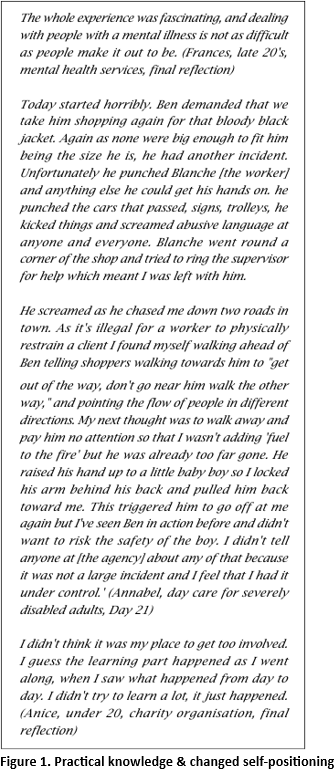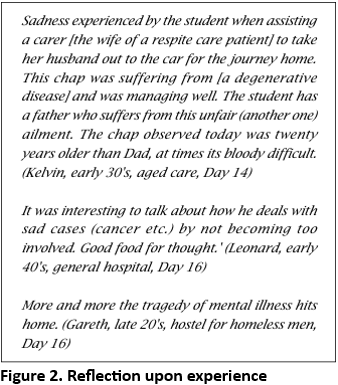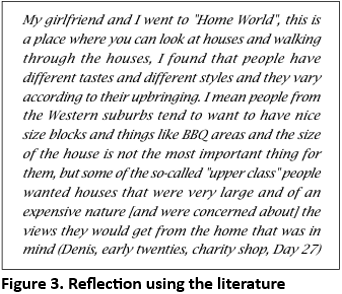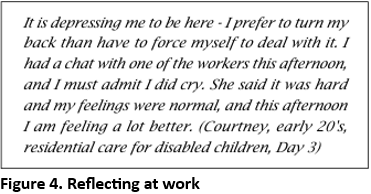

Grammar


Tenses


Present

Present Simple

Present Continuous

Present Perfect

Present Perfect Continuous


Past

Past Simple

Past Continuous

Past Perfect

Past Perfect Continuous


Future

Future Simple

Future Continuous

Future Perfect

Future Perfect Continuous


Parts Of Speech


Nouns

Countable and uncountable nouns

Verbal nouns

Singular and Plural nouns

Proper nouns

Nouns gender

Nouns definition

Concrete nouns

Abstract nouns

Common nouns

Collective nouns

Definition Of Nouns

Animate and Inanimate nouns

Nouns


Verbs

Stative and dynamic verbs

Finite and nonfinite verbs

To be verbs

Transitive and intransitive verbs

Auxiliary verbs

Modal verbs

Regular and irregular verbs

Action verbs

Verbs


Adverbs

Relative adverbs

Interrogative adverbs

Adverbs of time

Adverbs of place

Adverbs of reason

Adverbs of quantity

Adverbs of manner

Adverbs of frequency

Adverbs of affirmation

Adverbs


Adjectives

Quantitative adjective

Proper adjective

Possessive adjective

Numeral adjective

Interrogative adjective

Distributive adjective

Descriptive adjective

Demonstrative adjective


Pronouns

Subject pronoun

Relative pronoun

Reflexive pronoun

Reciprocal pronoun

Possessive pronoun

Personal pronoun

Interrogative pronoun

Indefinite pronoun

Emphatic pronoun

Distributive pronoun

Demonstrative pronoun

Pronouns


Pre Position


Preposition by function

Time preposition

Reason preposition

Possession preposition

Place preposition

Phrases preposition

Origin preposition

Measure preposition

Direction preposition

Contrast preposition

Agent preposition


Preposition by construction

Simple preposition

Phrase preposition

Double preposition

Compound preposition

prepositions


Conjunctions

Subordinating conjunction

Correlative conjunction

Coordinating conjunction

Conjunctive adverbs

conjunctions


Interjections

Express calling interjection

Phrases

Sentences

Clauses

Part of Speech


Grammar Rules

Passive and Active

Preference

Requests and offers

wishes

Be used to

Some and any

Could have done

Describing people

Giving advices

Possession

Comparative and superlative

Giving Reason

Making Suggestions

Apologizing

Forming questions

Since and for

Directions

Obligation

Adverbials

invitation

Articles

Imaginary condition

Zero conditional

First conditional

Second conditional

Third conditional

Reported speech

Demonstratives

Determiners

Direct and Indirect speech


Linguistics

Phonetics

Phonology

Linguistics fields

Syntax

Morphology

Semantics

pragmatics

History

Writing

Grammar

Phonetics and Phonology

Semiotics


Reading Comprehension

Elementary

Intermediate

Advanced


Teaching Methods

Teaching Strategies

Assessment
Learning outcomes
المؤلف:
Catherine Layton
المصدر:
Enhancing Teaching and Learning through Assessment
الجزء والصفحة:
P344-C29
2025-08-02
596
Learning outcomes
Despite all of the above-mentioned variations in experiences, there were three types of learning evident across most of them. These were the acquisition of practical knowledge; changes in self-positioning as a result of acquiring that knowledge; and, contrary to the markers' comments that there was no reflection evident in the diaries, reflection on that change.
The practical knowledge that students acquired should not be underestimated, or dismissed as technical competencies. As Forester 2003 points out, 'ordinary' work is a 'thickly layered texture of political struggles concerning power and authority, cultural negotiations over identities, and social constructions of the "problems" at hand' (Forester, 2003). It is as a consequence of this texture that students saw themselves and their relationships with others differently - students moved from anxiety and bewilderment to feeling capable of handling difficult situations on their own, without knowing how this had happened (Figure 1).
The reflection evident in the diaries was not consistent with marker expectations that students would be able to link theory with practice (the definition of reflection implicit in the assessment rubric). Reflection was directly derived from experiences, rather than a process of starting with the readings and seeing how concepts such as class might apply to the client group. Often, however, it was not possible to ascertain exactly what a student had concluded as a result of his or her reflection, even though the process of reflection was evident (Figure 1). The first extract in Figure 2, from a diary largely written in the third person (an ongoing reminder that this was an assessment task and the student's future was at stake), shows how the experiences in the placement might reverberate in another of the students' worlds:


Where there was (rare) evidence of the concepts being taught having been considered, this was not necessarily an issue at work (Figure 3).

Nor was the reflection necessarily a private activity (Figure 4).

 الاكثر قراءة في Teaching Strategies
الاكثر قراءة في Teaching Strategies
 اخر الاخبار
اخر الاخبار
اخبار العتبة العباسية المقدسة

الآخبار الصحية















 قسم الشؤون الفكرية يصدر كتاباً يوثق تاريخ السدانة في العتبة العباسية المقدسة
قسم الشؤون الفكرية يصدر كتاباً يوثق تاريخ السدانة في العتبة العباسية المقدسة "المهمة".. إصدار قصصي يوثّق القصص الفائزة في مسابقة فتوى الدفاع المقدسة للقصة القصيرة
"المهمة".. إصدار قصصي يوثّق القصص الفائزة في مسابقة فتوى الدفاع المقدسة للقصة القصيرة (نوافذ).. إصدار أدبي يوثق القصص الفائزة في مسابقة الإمام العسكري (عليه السلام)
(نوافذ).. إصدار أدبي يوثق القصص الفائزة في مسابقة الإمام العسكري (عليه السلام)


















